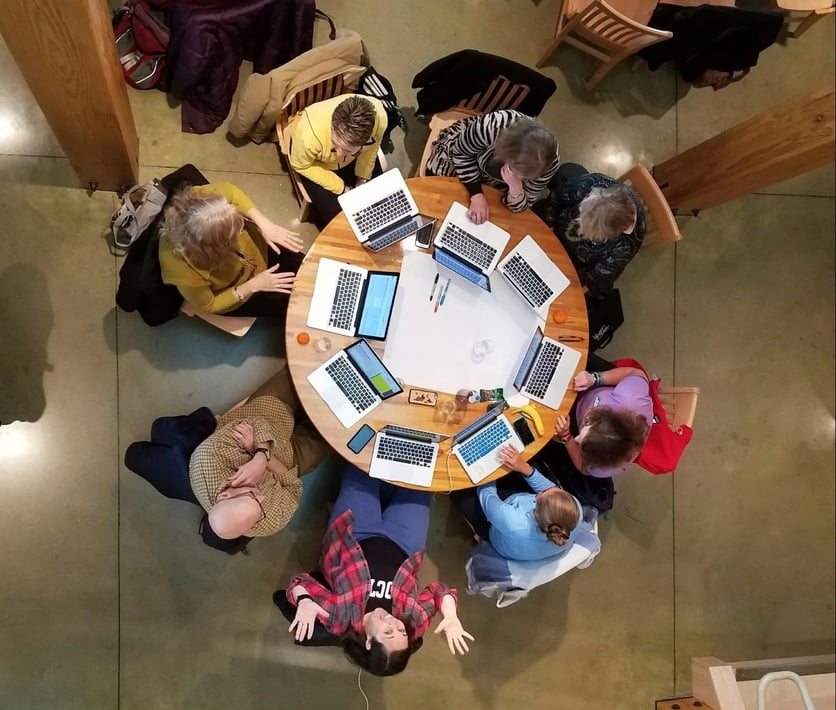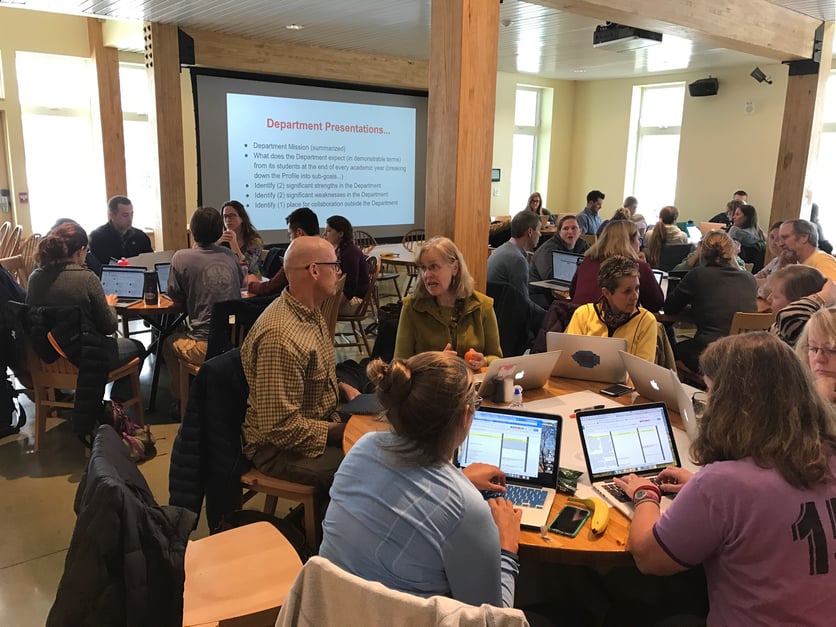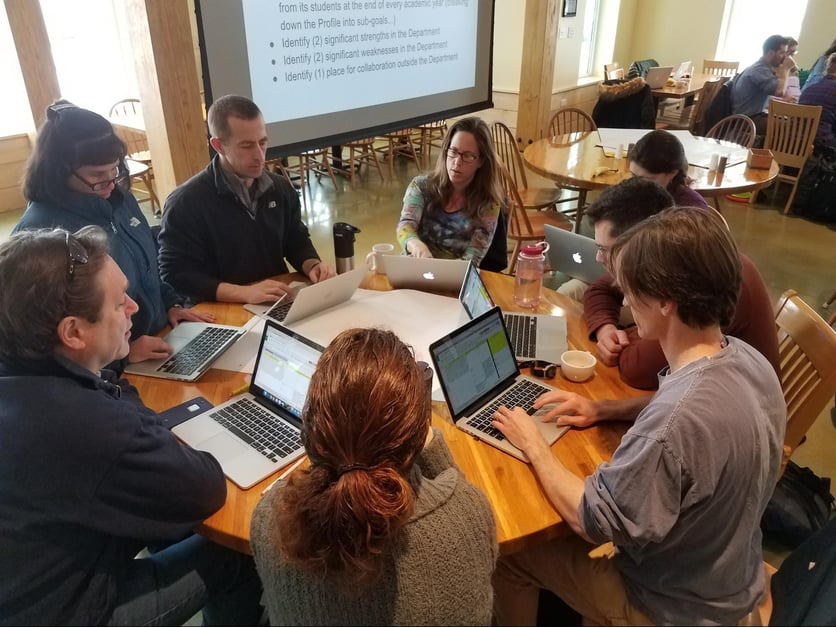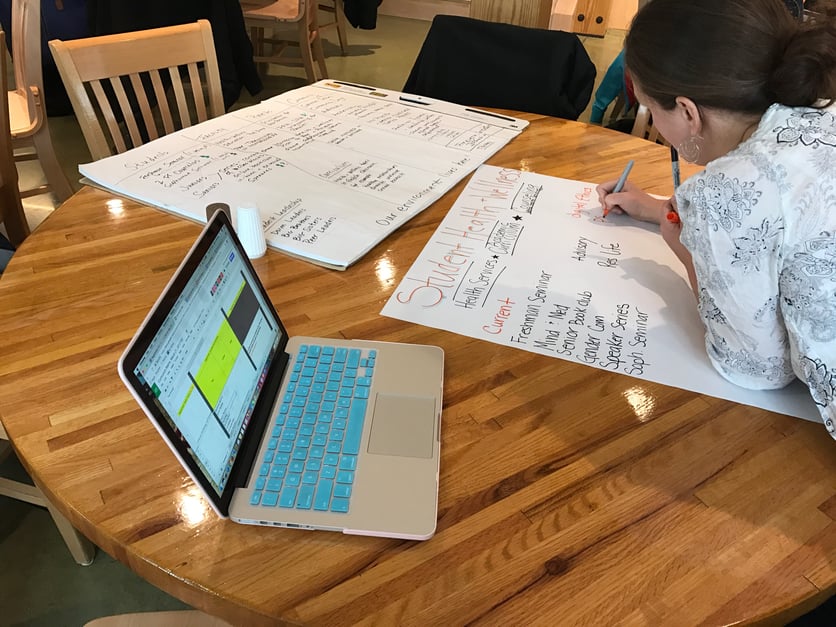The start of each academic term affords the opportunity for faculty to gather for designated in-service professional development. Past professional development days have welcomed guest speakers to campus, while other days rely on internal expertise to share innovative teaching practices and project based learning. Today, faculty gathered in academic departments to further refine our approach to fulfilling our mission as a school.

Fitting the equivalent of a weekend retreat worth of work into a three hour span during this morning’s workshops was no easy task. The time spent in academic departments (with Learning Skills faculty scattered throughout each department) was invaluable for us as we inventoried skill and content goals for each course, evaluated strengths and weaknesses of individual departments, and identified opportunities for collaboration across disciplines.

Along the way, we wrestled with how to best integrate new technologies, cross-curricular initiatives, digital portfolios for faculty and students, new teaching methodologies, an insatiable need for more time in the academic day, and the age old debate over the relationship between of numeric grades and enhanced learning, all while considering the long-term vision for Proctor’s academic model. Today was about beginning the long-term, never-ending process of self-reflection and self-assessment as we pursue Proctor's mission and seek to prepare our graduates for life after Proctor.
Profile of a Graduate
Proctor graduates are collaborative, ethical individuals, ready to contribute productively to their communities. Our diverse programs and experiential approach to education develop creative, resilient, and knowledgeable problem solvers who take responsibility for their own learning.

While having a guest speaker share new perspectives during professional development days serves a valuable purpose at times, today’s workshop focused on internal reflection was just what we needed as we prepare for Project Period (follow @proctorprojectperiod or #paprojectperiod2017 for updates on Instagram!) and the Spring Term. There is little doubt Proctor’s educational model works (just read some of these stories as proof), but we always need to do the hard work of understanding our current reality (curriculum goals and the priorities we have established in our classrooms whether intentional or otherwise) in order to create a vision for the future. We have to ask ourselves: Where are we right now? Where do we want to go? How do we get there?

We must appreciate the creative tension principal that exists in learning organizations like ours. We simultaneously must value the great work we are doing with our students each day, while creating a vision for the future of our school. Wrestling with this gap between reality and vision is not easy, but is critical to our continued evoluation as a school. To say we have this thing called education completely figured out would be foolish, inaccurate, and short-sighted. Today's workshops moved us forward in this on-going process, and reminded us to candidly look inward as we acknowledge our strengths and weaknesses in order to maximize the impact we are able to have on our students. Thank you to Kate Jones (Learning Skills), Adam Jones (Technology/Social Science), and Fiona Mills (Social Science) for organizing and leading today's workshops!








